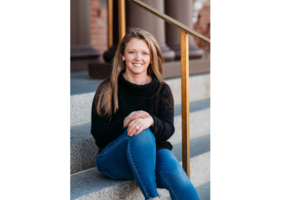From my Macaroni Sister Heidi Biesterveld, Publisher of Macaroni Kid Eau Claire, WI
January can be a cold and depressing time of the year as the bills from the holiday shopping season have arrived. I like to use this time of the year to focus on spending habits and pay down debt if Santa was a little too exuberant.
We’ve been using the same budget format for over twenty years, and it works well for us. It’s nothing fancy. I’ll share how we get our financial house in order. Maybe it will help you too.
First, I write down our fixed monthly expenses. I actually input them into a blank spreadsheet, but writing them down in one place accomplishes that same thing. Fixed expenses are things like your house payment or rent, electricity, car payments, insurance, phone bills…things that may vary slightly in amount, but are due every month like clockwork.
In the process of doing this, I look at past credit card statements to see if there are any monthly recurring charges that I may have forgotten to include. Some examples would be recurring magazine subscriptions, movie network subscriptions, identity theft protection, XM Satellite radio, gym memberships, etc.
The next thing I do is look carefully at each one of those “fixed expenses” to determine if it’s still of value. For instance, do you really need a landline and a cell phone? Two years ago we made the switch to use only our cell phones and have never regretted it. Is cable worth the expense? Sure, it’s nice to have, but eliminating your cable bill could be as financially beneficial as getting a part-time job. There are so many less expensive options available now. Chances are that your public library has more movies and tv shows available to rent for free than you ever imagined.
After I’ve picked off the low hanging fruit of easily reduced expenses, I look at what’s left.
Insurance. When is the last time you got a quote on your home/auto policy? We had the same policy for nearly 15 years. Turns out we saved almost $100 a month by shopping around. Insurance companies don’t always reward loyalty with better rates. What about your electric bill? Could you perhaps turn down the temp one degree and still be warm? These are two pretty easy ways to save. If you aren’t up to shopping for insurance rates or wearing an extra sweater, don’t worry about it. Move on.
The last thing I do is look at what’s left to pay for the expenses that aren’t fixed. (Gas, groceries, clothing, entertainment, eating out, haircare, repairs and the catch-all, miscellaneous). I start with our monthly take-home income, subtract whatever is a “fixed” expense and see what’s left. Sometimes this is a shocker and may explain why you’ve been going into debt for a few months. Sometimes you are pleasantly surprised with what you have to work with and wonder why you don’t have more in savings. Either way, the next step is the same.
This is where it gets a little tedious, but is well worth the effort. I promise you if you can do this for one month, you will learn so much about how to better manage your money.
For one month, and only one month (I’d go crazy if I did it any longer), I write down every single dollar that I spend on anything outside of fixed expenses. Every trip to the grocery store, Walmart, pack of gum, etc. Doing this is beneficial because it allows me to see what is being spent as it goes out, gives me a baseline upon which to budget the next 11 months, alerts me to times I spend money and don’t realize it, and most importantly, helps me to spend less because I really don’t like writing things down. To be very honest, it’s often not worth the purchase if I know I’m going to have to log it later, which eliminates impulse purchases and does a great deal toward getting a jump start on saving early in the year. Just this afternoon I drove by the coffee shop, thought about stopping for a latte and decided against it. I would have to justify spending money on an unneeded cup of coffee later in the month when I was tallying the needs versus wants. Since I didn’t want the guilt, I kept driving.
At the end of the month, take all of the non-fixed expenditures and group them into general categories that make sense to you. I use the categories of groceries, clothing, maintenance, entertainment, gas, out to eat, hair care and medical/dental. Then take a look at where you’ve spent your money.
Do you need to make any changes? Are you spending more on dining out that you realized?
Take anything extra and apply it toward paying off debt, the highest interest rate debt first. Set aside some for savings and see how you do.
You can tweak this as you go along. I look at financial fitness a lot like physical fitness -- it's a work in progress. Not being afraid to jump on the scale is half the battle.
🎉🎉🎉
Looking for more fun in Plymouth?
Sign up today for our weekly Macaroni Kid Plymouth newsletter so you never miss a thing!



